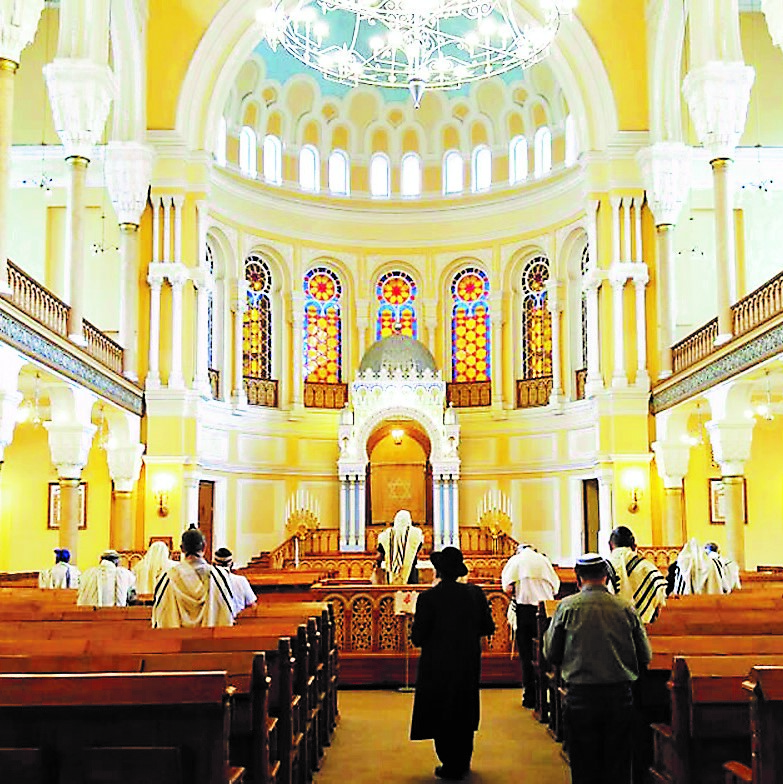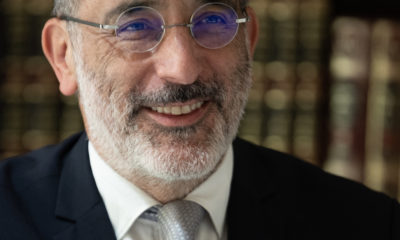
Parshot/Festivals

Rosh Hashanah silenced, but music plays on in our mind
Love them or loathe them, shul choirs are to Rosh Hashanah what matzah is to Pesach. Raising their voices from either the bimah or the choir loft, the choir has defined the yom tov memories of South African Jews, young and old, for decades.
For the first time in living memory, however, choral performances won’t be held around the country this year, having been silenced by COVID-19.
While some of us may still be attending a minyan of some kind, we won’t be hearing any of the traditional tunes which define the festival experience.
What exactly does this loss mean to us, and is there any way we could possibly experience the musical components of Rosh Hashanah this year?
“Music connects many of us to the chaggim,” says Adam Golding, accomplished musician and the conductor at Great Park Shul. “Without it, there’s no chag for me. It creates the feeling of the day, whether celebrative or serious. Music creates moments, and connects us with what the chag is about.”
The silencing of choirs this year is unprecedented, Golding says.
“I don’t think that once during the 20th century, South African shuls were ever without choirs over this time,” he says. “This is the first time in the past 120 years. Great Park had an established choir by the end of the 19th century, making it an unprecedented first that there’s no choir this year.
“For a majority of the big, traditional shuls, many congregants come for services on these days only. In a large shul, 100 people is a big crowd for a Friday night. The fact is, they can typically accommodate hundreds more, and you really see this only over the high holy days when people are exposed to choral music.”
It makes choirs a defining part of chag for most people, says Golding.
“The music allows them to relate to the service they come to once a year. The tunes they hear are usually traditional and novel, blending their memories with the anticipation of something new to look forward to. While some people will still be going to a shul this year, they won’t be taking part in the way they usually do. It’s going to be strange and difficult in some cases.”
For Joel Sacher, the choirmaster at Waverley Shul, music represents a powerful personal connection with Hashem.
“It’s a central part of our shul experience,” he says. “I’m deeply invested in writing and arranging it. When the prospect of high holidays without shul services – or with compromised services as things stand – first dawned on me a few months ago, it seemed unthinkable.
“It’s still difficult to digest, but six months of shabbos and chaggim under COVID-19 restrictions have forced us to experience these days differently.”
Sacher and Golding have devised ways to ensure that the congregants at their shuls can continue to connect with the musicality of the chag.
Sacher says that a number of shul choirs (including Waverley Shul) are producing music videos featuring yom tov tunes to nourish us in the days leading up to chag. Golding has endeavoured to do the same.
“We’ve tried to find ways to help people find that musical connection,” says Golding. “At Great Park, we’ve embarked on a project to record key pieces from the services for upload to YouTube. People are sharing recordings made at home. We’re hoping they give them a way to connect.”
In addition, Great Park will host two pre-chag services online, the first of which is due to air next Thursday. The service will include music, shofar blowing, inspirational ideas, and other elements of the chag aimed at setting the tone for yamim noraim.
“It won’t be in the traditional service format, nor is it intended to replicate it,” Golding says. “We’re hoping to give people something they can take into yom tov with them in terms of music and the shul experience.
“In any situation, it’s our job to find the positives for ourselves. It’s personal, and there isn’t a universal silver lining. I’m hoping that the recordings we’ve shared can help people find their own connection with the chag that they can enjoy in their own way.”
Integral though choirs may be, Sacher stresses that we can’t forget they are a means to an end, namely connecting us with the divine.
“We’re speaking to, praising, beseeching the creator of the universe,” he says. “Music in davening gives added meaning to the text, stirs our emotions, and allows us to feel things in a different way, a deeper way than we otherwise would, and it’s integral for us.
“This year, though, I believe that Hashem has challenged each of us to explore new avenues and find our connection on yom tov itself – without music. Maybe this is an opportunity to imbue our future chaggim with greater depth and appreciation once we do return to shul.”
Sacher believes that this year we can possibly go beyond our standard yom tovexperience, enhancing it with added dimensions of significance we possibly overlook. This could involve something as simple as reading insights into the text of the yom tovdavening, filling this year’s void by gaining a better understanding of the prayers we hear sung yearly.
“We love the joyful melodies that celebrate Hashem’s Kingship and the heart-rending, solemn melodies which capture the introspective elements,” says Sacher. “Those themes are still there. If we can’t sing about them, why not spend some time reading up on them and experience them like that? In the week of yom tov, this publication always carries excellent articles by our inspiring rabbis. These, too, could go some way to filling the void.”
“There are definitely ways for us to make yom tov special and meaningful without the usual trimmings. So, let’s be positive, plan our chag, and devise ways to fill the void. It’s up to each one of us.”










